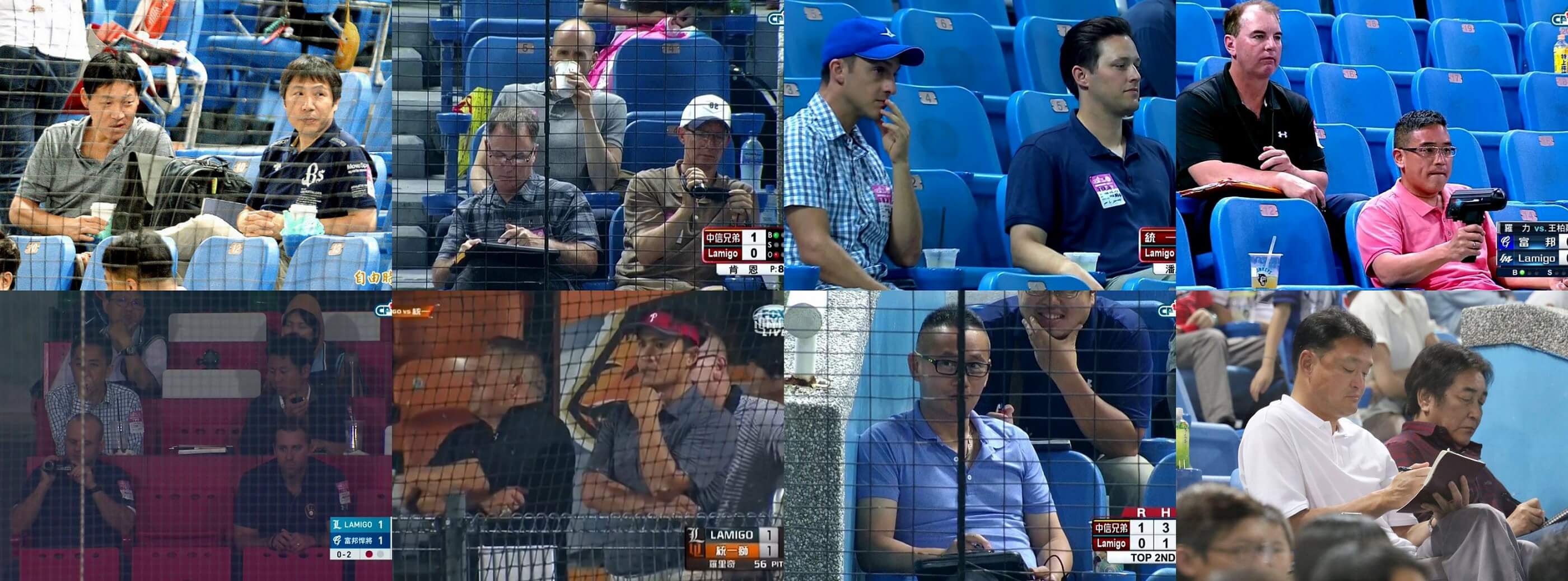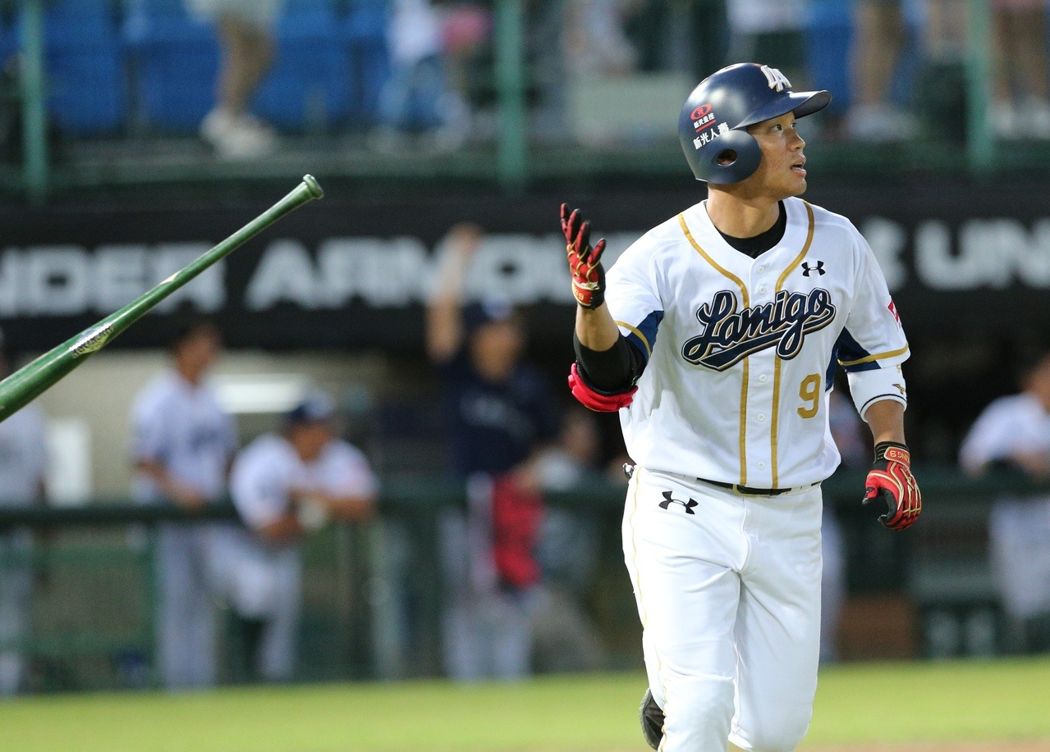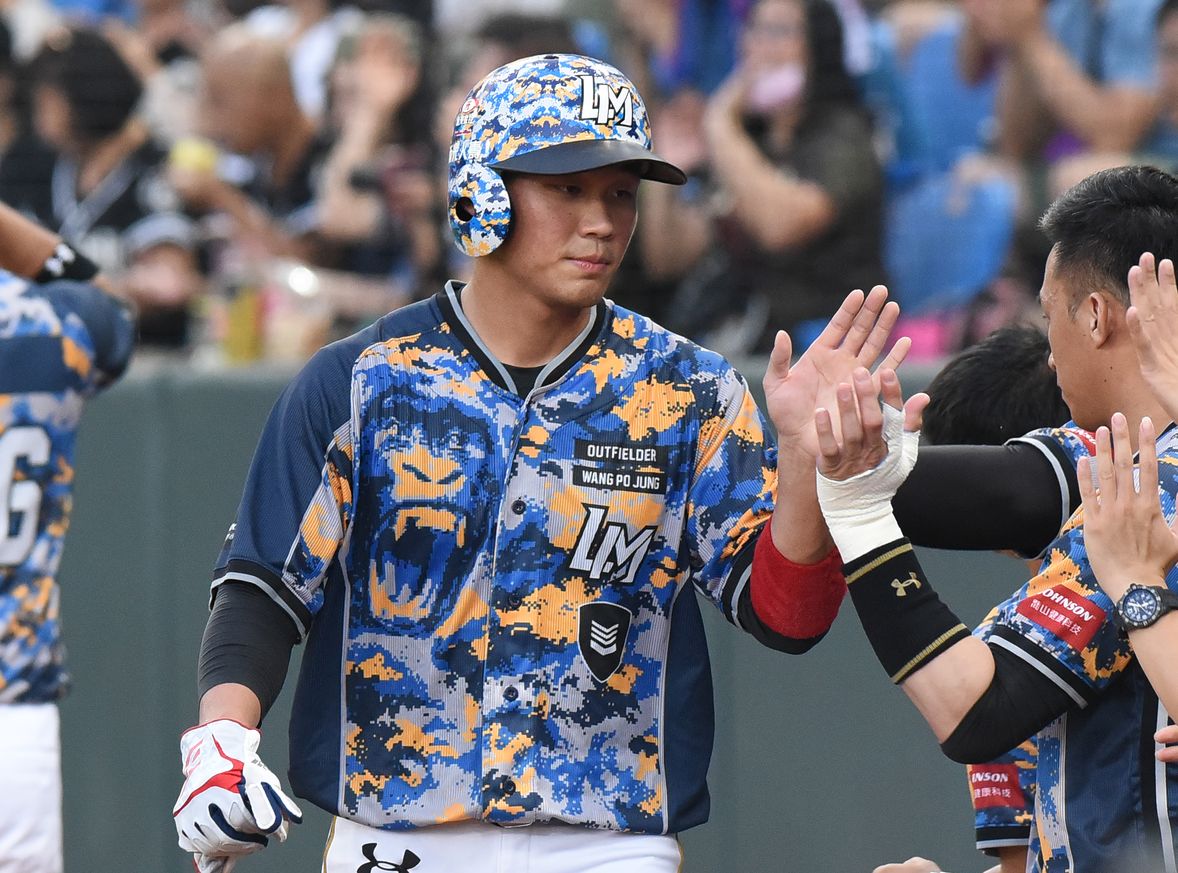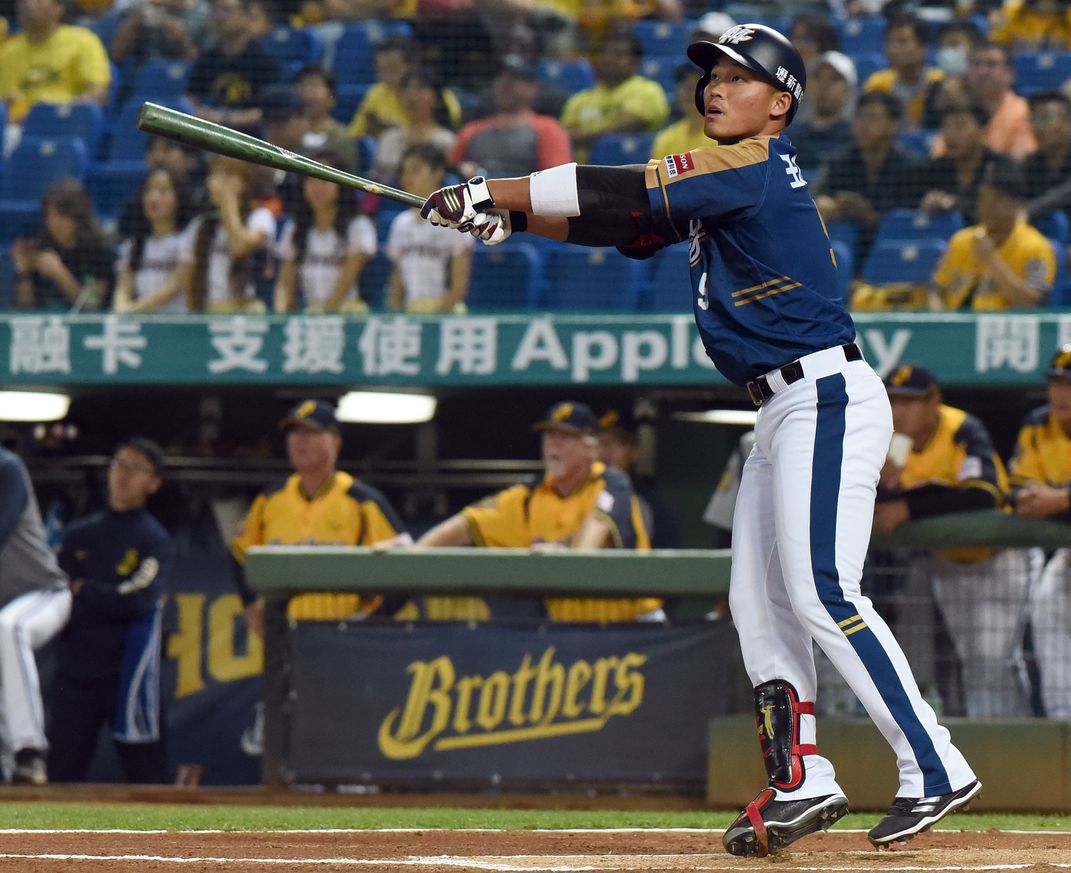Let the Bidding of Wang Po-Jung Begin
It is official, the Lamigo Monkeys announced they will post 25-year-old outfielder 王柏融 (Wang Po-Jung) this offseason. According to the Monkeys’ general manager, the posting process will begin on November 4 after the Taiwan Series.
“Wang Po-Jung will be the first player in the CPBL history to use the posting system,” said Monkeys’ general manager Justin Liu. “We hope everything will go smoothly and we can wrap everything up before the end of December.”
It's official, #Lamigo Monkeys' will post 王柏融 (Wang Po-Jung) this offseason. According to Monkeys' general manager, the posting process will begin after the Taiwan Series. #CPBL pic.twitter.com/nFNWFe1dlj
— CPBL STATS (@GOCPBL) October 17, 2018
CPBL Posting Process in Three Stages:
- Begin the bidding process, Monkeys to collect bids from overseas teams.
- Review the posting terms from the MLB and NPB organisations.
- Accept the terms and start dealing with that particular organisation along with Wang Po-Jung and his agency.
Under the currently CPBL rule, should a player accumulate three service years in the first team. He will be eligible for the international free agency with the permission from his team.
There have been several cases of CPBL players being “posted” to the NPB in the past. However, there were no official posting rules in place at that time, so all the deals were all under the table, it is more like “buyout” rather than posting.
Quick Career Overview: Wang Po-Jung (2015-2018)
Wang was the 2015 first round draft pick. He signed with the Monkeys for a total package of $167,000 USD in August that year. Despite joining the squad towards the end of the 2015 season, he wound up slashing .324/.377/.640 in 122 plate appearances.
In 2016, Wang put up a monster number .414/.476/.689 with 158 wRC+. He ended up setting the all-time CPBL record for batting average and the number of hits (200 hits in 116 game). He also won the Rookie of the Year award and the 2016 CPBL MVP.
It seems there is no sophomore jinx with Wang Po-Jung, as he posted yet another outstanding season with .407/.491/.700 and 179 wRC+ in 2017. He became the second CPBL player to win the hitting Quadruple Crown (AVG, H, HR, RBI).
It is also worth noting, earlier in 2017, in an exhibition series against the Japanese National Team, Wang proved that he could handle elite pitchers from a higher level by performing well against the NPB’s Norimoto Takahiro and Sugano Tomoyuki.
With the strike zone expansion in the 2018 season, for the first time in his career, he ran into a bit a slump in the middle of the season. Wang finished the season with .351/.446/.547 and 151 wRC+. Despite that, he is still within the top five of each hitting category and finished second in wRC+.
To describe Wang Po-Jung in a sentence? Let’s just say, if Wang decides to stay in Taiwan’s CPBL, then he will break every CPBL hitting records in the span of his career.
What We Think About the Posting of Wang Po-Jung
A lot of people do not realise how important this is for Taiwan baseball. It symbolised the CPBL is taking another critical step away from the dark age and moving forward as a professional league.
Quick History of CPBL Dark Age
We will start with a quick background history about the “CPBL Dark Age”. From the mid-’90s to late ‘2000s, the CPBL suffered from endless game-fixing scandals.
The attendance took a massive nosedive from mid-6000 to an average of 1676 fans per game, due to financial difficulties and other reasons, many teams disbanded and the league shrunk from 11 active teams down to 4.
Running a professional baseball team during the CPBL dark age, every day was a struggle. There is no time for the Players’ Union, free agency structure and posting system as the league can disappear at any time.
After several years of hard work by the teams and the league, fans are starting to return to the stadiums, we finally reached a stage where teams and the league are stable enough to start thinking about how make the cake bigger. As a fan who went through the dark age, this is a huge sign of improvement.
New Route to Play in MLB and NPB
Should the Monkeys able to successfully post Wang Po-Jung, this is going to open another new path for young Taiwanese baseball players.
Talented amateurs now do not have to sign with MLB or NPB right after school. Instead, they can play in Taiwan’s CPBL first and still have a chance to play in a higher level three years down the line.
If they dominate in the CPBL, then they can move up to the MLB or NPB via the posting route. If they do not perform well above the CPBL level, then why waste time going through the MLB or NPB minor league system? Why not stay in Taiwan and earn as much as they can in their limited time as a professional player.
There is that home, language and family factors that needed to be considered. It is also worth mentioning the CPBL salary is a lot higher than the MLB’s minor leagues system. Taiwanese players are signed to an annual or multi-year contract, with food and accommodations fully covered by the team.
*Note: Based on the 2018 data, the average salary for all the CPBL domestic players is $61,200 USD, this data includes CPBL minor league salaries as well. Top tier players generally make around $200,000 USD to $480,000 USD and the mid-range guy around $80,000 to $150,000 USD. [Further Reading]
All About Players Retention in Taiwan’s CPBL
For Taiwan baseball in general, this can be a good thing too. The CPBL will be able to retain the country’s top amateur talents and keep them in the CPBL for at least three seasons before them going overseas.
Sure, this is not going to prevent those players receive a signing bonus over $300,000 USD from going overseas after school, but it will undoubtedly keeping those below that price range and provide them more incentive to stay in Taiwan.
*Note: The last couple seasons, the CPBL first round draftees generally received a total package around $200,000 to $250,000 USD. [Further Reading]
It is a Business, Not Charity
From a business point of view, if the CPBL teams can make some decent money from “selling” its players to overseas organisations. They will probably want to take good care of them, providing better coaching and training to help them develop further so that they can fetch a better price down the line.
Yes, I am describing players as livestock. However, in reality, that is how a professional baseball organisation should operate. Yes, it is a social responsibility, but at the end of the day, it is not a charity, the real motivation will be money.
Need Six to Ten Years to See Results
Keep that momentum going for six to ten years, the quality of games, overall salaries, average attendance and draftees signing bonuses will increase along with it. Maybe by then, the CPBL will be a six-team league, and teams can retain young players within the $300,000 to $500,000 USD category.
I am a firm believer of doing the right things, have the correct structures and policies in place, the league will improve. It will not change everything overnight, but one step at the time, it will happen.










[…] Lamigo Monkeys will post top slugger Wang Po-Jung, as the CPBL Stats website has covered. He will become the first player posted from the Chinese Professional Baseball League, which is […]
The Baltimore Orioles have a huge amount of international bonus pool money, more than $5 million, with most of the best international prospects already committed. I think the bonus pool money is use it during the signing year or lose it. That could mean that Wang Po-Jung will look a lot more appealing to the O’s when he’s posted, since the Orioles will be looking for international players to sign.
I was going to write another blog post the other day on how much should the Monkeys “post/ contract buyout/ sell” Wang Po-Jung for, but I’m going on holiday tomorrow, so might as well talk about it here briefly.
I think the bare minimum the Monkeys will accept as a posting fee of Wang Po-Jung is about $600,000 USD. This is not including Wang Po-Jung’s future salary with the overseas organisation.
Assuming the Monkeys want to recoup the initial $167,000 signing bonus, plus either 1 or 2 years of Wang Po-Jung’s annual salary. Wang is currently on $200,000 USD a year. So, $167K + $200K + $200K = $567K
But Wang is currently in the second year of his 5 years multi-year contract. He is expected to receive $200K in 2019, $220K in 2020 and $240K in 2021. So maybe the Monkeys will ask the overseas organisation to cover all the remaining salary of Wang? In that case, it will probably be around $850K + Wang’s future salary.
According to some Japanese news articles, the teams in Japan believe they will probably need to spend around 500 million yen (4.4 million USD) to secure Wang. But I don’t know how they come to that number, maybe multi-year contracts? Just seems a bit high to me.
I also believe, Wang being the first player to use the posting system, he will get low-balled to the ground. Especially coming out of CPBL, in many’s eyes a league that hasn’t been tested.